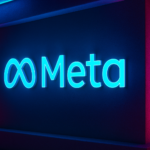The financial landscape is shifting as tokenization offers a fresh approach for businesses bypassing traditional funding challenges. Companies like Stobox are at the forefront of transforming physical asset ownership into a seamless digital process. This evolution is capturing the attention of industries and regions, reshaping the financial market with innovative solutions. As more organizations embrace this technology, the implications for global trading and investment are profound, indicating a significant move towards more accessible financial services. The integration of regulated digital assets into financial ecosystems is becoming more pronounced, marking a notable trend in modern finance.
Stobox has been a catalyst in redefining how assets are viewed and traded since its inception in 2018. The company has already facilitated the tokenization of over $500 million worth of assets, marking its significant role in this market. Last year’s data shows a steady increase in the use of tokenization as businesses seek alternatives to traditional financing paths. Meanwhile, global regions like Europe and the UK have shown considerable advancements in embracing tokenized solutions, furthering the narrative of a decentralized financial future. As the ecosystem matures, the potential for new applications continues to expand.
How Does Tokenization of Real-World Assets Work?
Tokenization entails converting ownership rights of tangible assets such as real estate into digital tokens on a blockchain. Each token signifies a share or claim, facilitating easier trading and use as collateral. The digital shift offers more efficiency, bridging gaps in asset liquidity and transfer speed compared to older systems. Stobox plays a pivotal role in this transition, providing solutions that simplify the complexities traditionally associated with trading real-world assets.
What Has Led to the Rise of Europe in this Sector?
Europe is expanding its tokenization efforts beyond real estate, venturing into areas like agriculture and medical research. This diversification demonstrates a growing trend, supported by legal frameworks and initiatives that encourage innovation. Moreover, the growth of stablecoins, highlighted by Visa’s strategic moves, reinforces the region’s commitment to embracing digital currencies as a major component of its economic landscape.
The UK’s emerging role as a key hub for tokenized assets further emphasizes the shift towards digital finance. The rise is marked by initiatives like the Digital Securities Sandbox, advancing the legal and practical framework necessary for tokenized securities. The country’s proactive stance offers a conducive environment for tokenization advancements, encouraging both startups and established firms to explore these possibilities.
Germany is also setting the stage with its regulatory advancements, such as the FlexCo model, conducive to startup involvement in tokenization. Such regulatory progress provides the necessary backbone for creating a robust and agile financial framework, enabling the conversion of traditional equity into digital formats with greater fluidity and accessibility. This progression is critical for Germany’s ambition to lead in tokenized finance.
Heading into future developments, liquidity concerns persist as a crucial issue. For businesses aiming to thrive in the tokenized landscape, access to global fundraising networks remains vital. Thus, platforms like Stobox must balance regulatory obligations with opportunities that digital assets provide. Insights reflect varied readiness among companies to navigate the legal complexities of tokenization, impacting how swiftly this new finance chapter unfolds.
The maturation of tokenization marks a pivotal phase, shifting from the initial speculative engagements in cryptocurrency to more institutional, regulated structures. This evolution is paving the way for widespread adoption, creating a vibrant market for digital assets that align with real-world demands. As countries enhance their regulatory environments, the door opens wider for businesses to utilize blockchain technology for modern asset management efficiently.
Stobox’s foresight and advancements in offering comprehensive solutions represent a significant contribution to the tokenization journey. Businesses and individuals exploring this new frontier need to consider the implications and infrastructure requirements carefully. Whatever the trajectory, tokenized assets are poised to redefine future asset ownership and trading conventions, offering promising yet challenging opportunities for growth.










